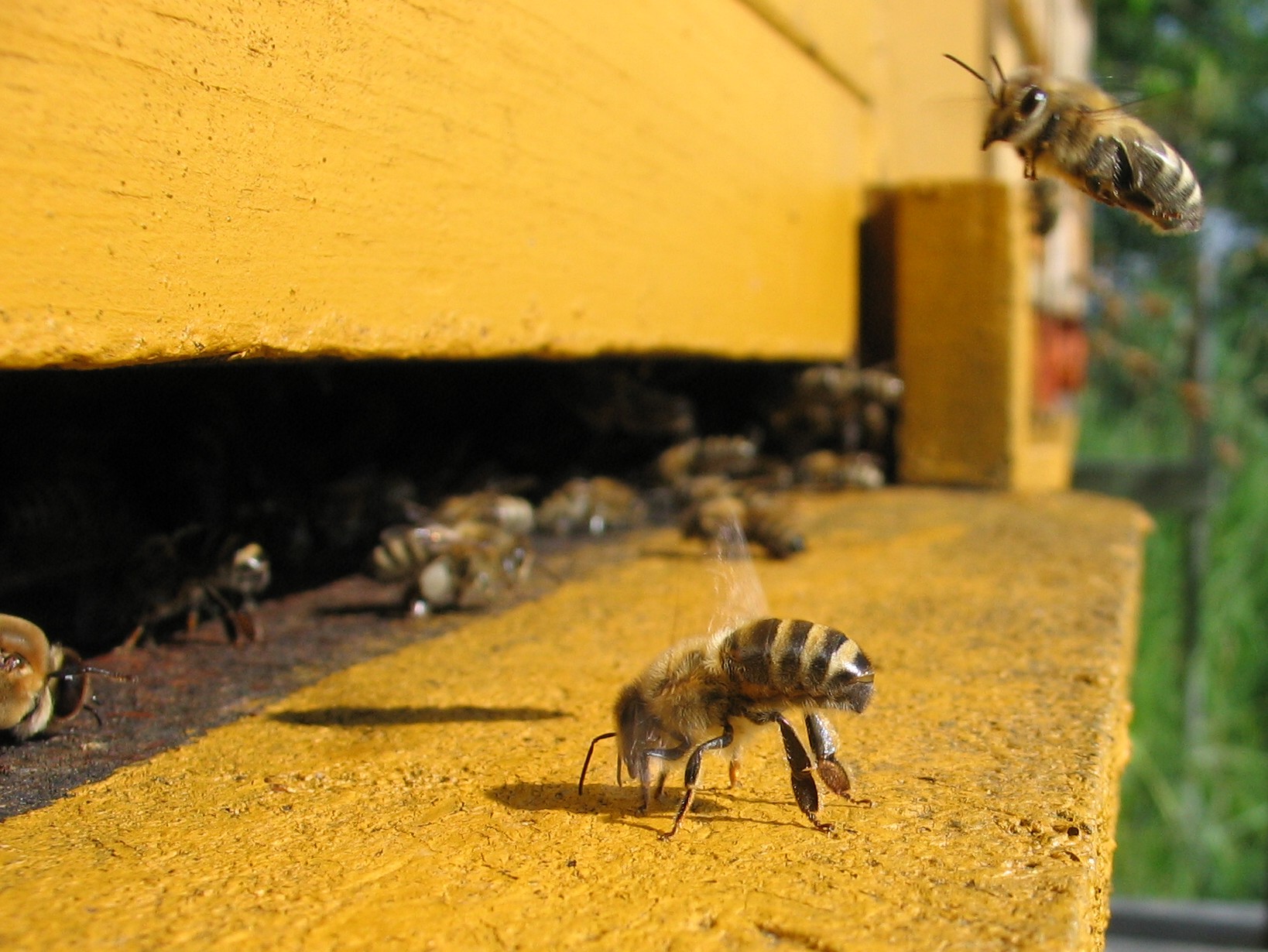Rowan
Jacobsen's "Fruitless fall" is a book about honeybees, beekeeping
and, above all, the mysterious disease known as Colony Collapse Disorder (CCD).
For several years, honeybees all over the world have been killed by CCD. The disease is a kind of "bee AIDS", making the bees more vulnerable to a long series of lethal viruses. No explanation for CCD has yet been found. Among the main suspects are pesticides, viruses or fungal infections. The CCD is unrelated to an earlier pandemic which wiped out millions of honeybees worldwide: the varroa mite.
The author believes that CCD doesn't have a single cause. Rather, CCD is the end result of too much unnatural, industrialized, commercial beekeeping. Honeybees are soaked with pesticides and fungicides, stressed by migratory beekeeping, fed with bad pollen, and attacked by varroa mites (the author believes that mites cannot survive in "natural" hives). Small wonder the colonies finally collapse!
Jacobsen also points out the dire consequences if honeybees were to disappear. Most of our fruits and vegetables come from crops pollinated by honeybees, honey is used in a wide variety of products, and even meat and milk production might be threatened, since bees pollinate the plants eaten by the cattle. Of course, other pollinators exist, but they too are threatened. Wild bumble bees have already disappeared in many areas, probably due to pesticides, or perhaps diseases inadvertently introduced from European honeybees. In some parts of China and Brazil, crops are hand pollinated by humans - not a pleasant perspective.
The most interesting chapters of the book deal with attempts to create a more "natural" form of beekeeping. As already noted, Jacobsen believes that the standardized hive frames might be part of the problem. In more "natural" hives, the bees are better at detecting varroa mites. The author has also interviewed an organic beekeeper who uses Russian honeybees.
An obvious problem with the organic solutions advocated by the author is that they aren't commercially viable. It's more difficult to extract honey from the natural-cell hives, and they can't be moved (and hence cannot be transported for pollination service). The Russian bees seem to be less productive. The organic solutions are for a world of local self-sufficiency in agriculture. But can they work in the overcrowded, industrialized and globalized reality of the 21st century? Somehow, it feels as if another solution than those Russian bees must be found, and fast!
My main problem with "Fruitless fall" is Jacobsen's style of writing, which often borders the frivolous. I guess I don't have his sense of humour (the title of my review mimics the author's style). Still, "Fruitless fall" is well worth reading. Another book on the same subject is "A world without bees" by Benjamin and McCallum, which I have reviewed elsewhere.

No comments:
Post a Comment